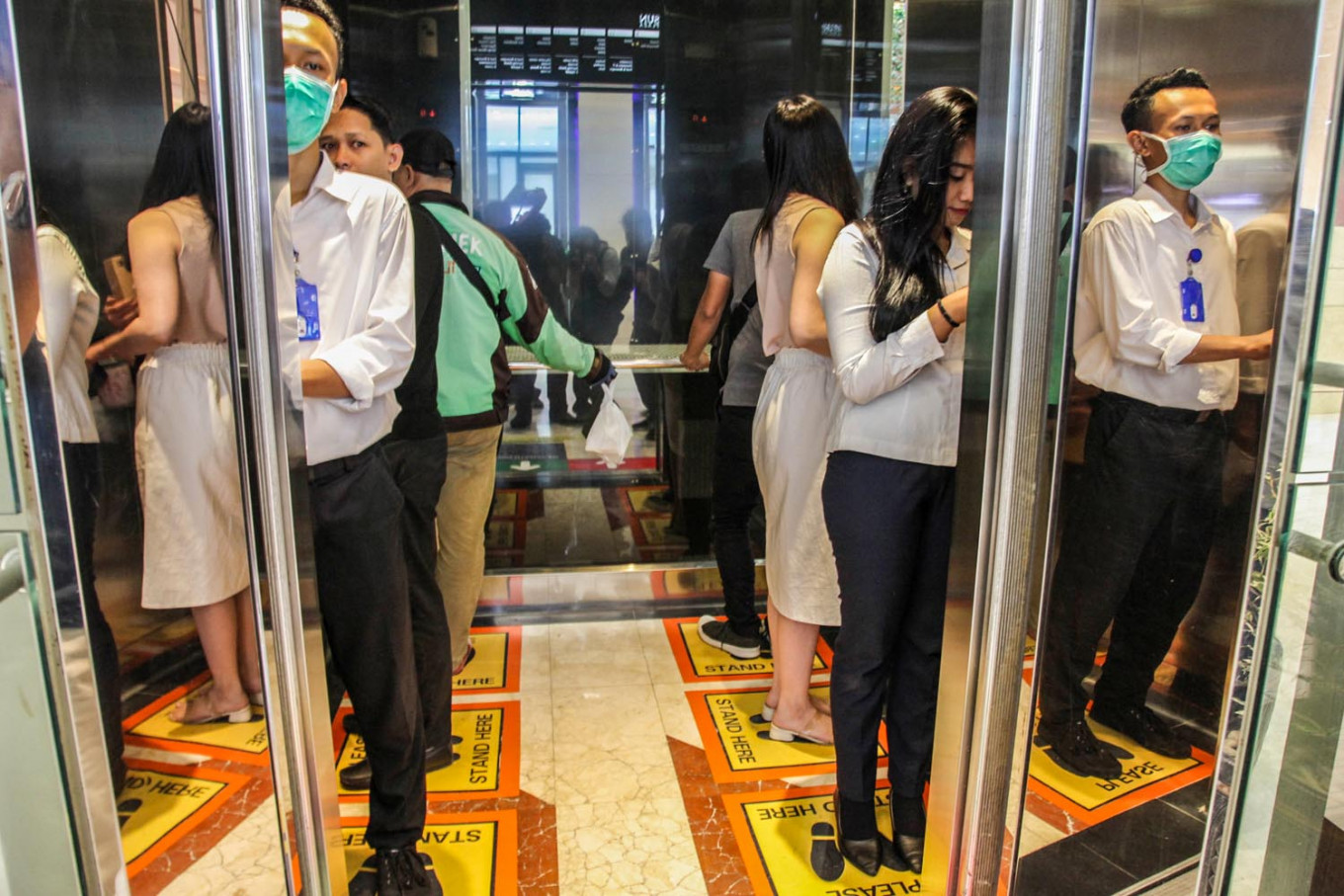Popular Reads
Top Results
Can't find what you're looking for?
View all search resultsPopular Reads
Top Results
Can't find what you're looking for?
View all search resultsWorld Bank suggests firms ‘hibernate’ during COVID-19 pandemic
Change text size
Gift Premium Articles
to Anyone
T
he World Bank recommends that the government let firms “hibernate” to survive the COVID-19 pandemic and allow workers to keep their jobs.
Lead country economist for Indonesia Frederico Gil Sander said on Tuesday that the Indonesian government could help micro, small and medium enterprises (MSMEs) and big corporations by temporarily relieving them of fix costs like utility bills, loan interest and rents.
He also suggested allowing firms to cut employees’ wages while the government would cover the difference with cash transfers.
“This hibernation could help businesses impacted by the COVID-19 economic crisis [avoid] closure and let workers keep their jobs,” said Sander during a webinar.
Some 2.8 million people have lost their jobs as of Monday, according to data from the Manpower Ministry and the Workers Social Security Agency (BPJS Ketenagakerjaan). More than half were furloughed and placed on paid or unpaid leave.
A recent survey by the Mobile Marketing Association (MMA) and SurveySensum found that business players expected the situation to normalize within five months, or around August. The survey further stated that the COVID-19 pandemic hit business revenue, with 76 percent of the respondents saying the pandemic had “severely disturbed daily business activities.”
Sander went on to say that the government could also provide cash transfers to micro and small businesses with a small number of employees or no bank loans to help them cover daily expenses and keep them from selling their assets.
Aside from hibernating, businesses could also convert their production lines to produce other products necessary in the fight against the pandemic so they could keep economic activities going, he said.
Numerous textile companies have shifted to the production of hazmat suits and washable masks, while several state-owned firms like weapons manufacturer PT Pindad, electronics manufacturer PT LEN and aircraft manufacturer PT Dirgantara Indonesia (PTDI) plan to produce ventilators for COVID-19 patients.
For the longer term, Sander suggested the government create a comprehensive recovery plan and economic stimulus to help businesses repay their debts and help banks improve their balance sheets once the crisis ends.
“The government should identify sectors that are badly hit by the pandemic and devise a robust revenue plan to help the economy recover from the crisis,” he said, adding that such a revenue plan included increasing state tax revenue by widening the tax base and tax-to-GDP ratio.
As the pandemic has yet to show signs of abating, Sander also called on the government to protect sectors essential during the pandemic.
“Sectors like food production, medical equipment production and health should be protected to ensure their accessibility to raw materials amid the mobility restrictions,” he said.
The Health Ministry has approved requests from ten cities and regencies across Indonesia to enforce large-scale social restrictions (PSBB) to curb the spread of the coronavirus in the country.
As of Tuesday afternoon, the disease has infected more than 4,800 people in Indonesia and killed at least 450, official data show.










